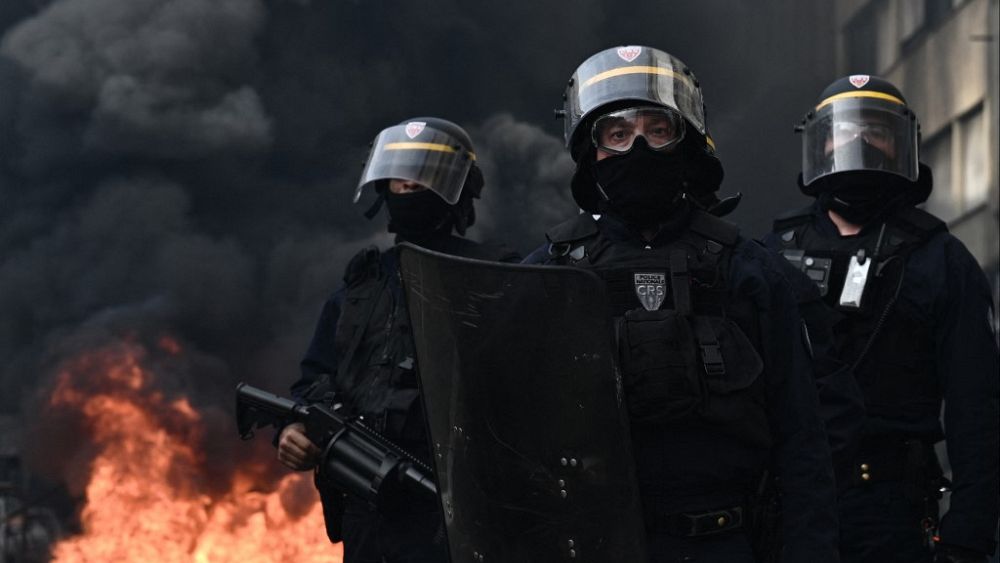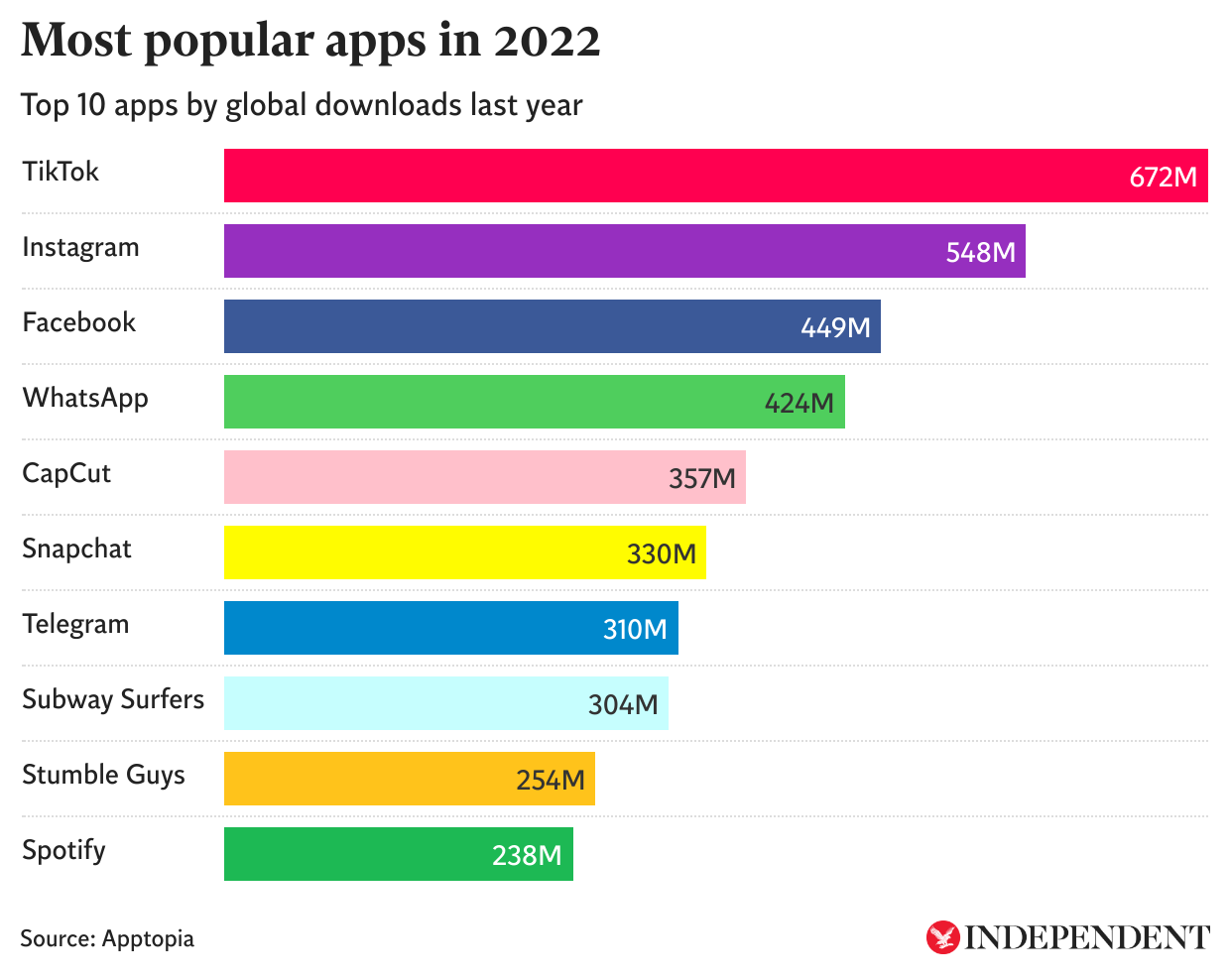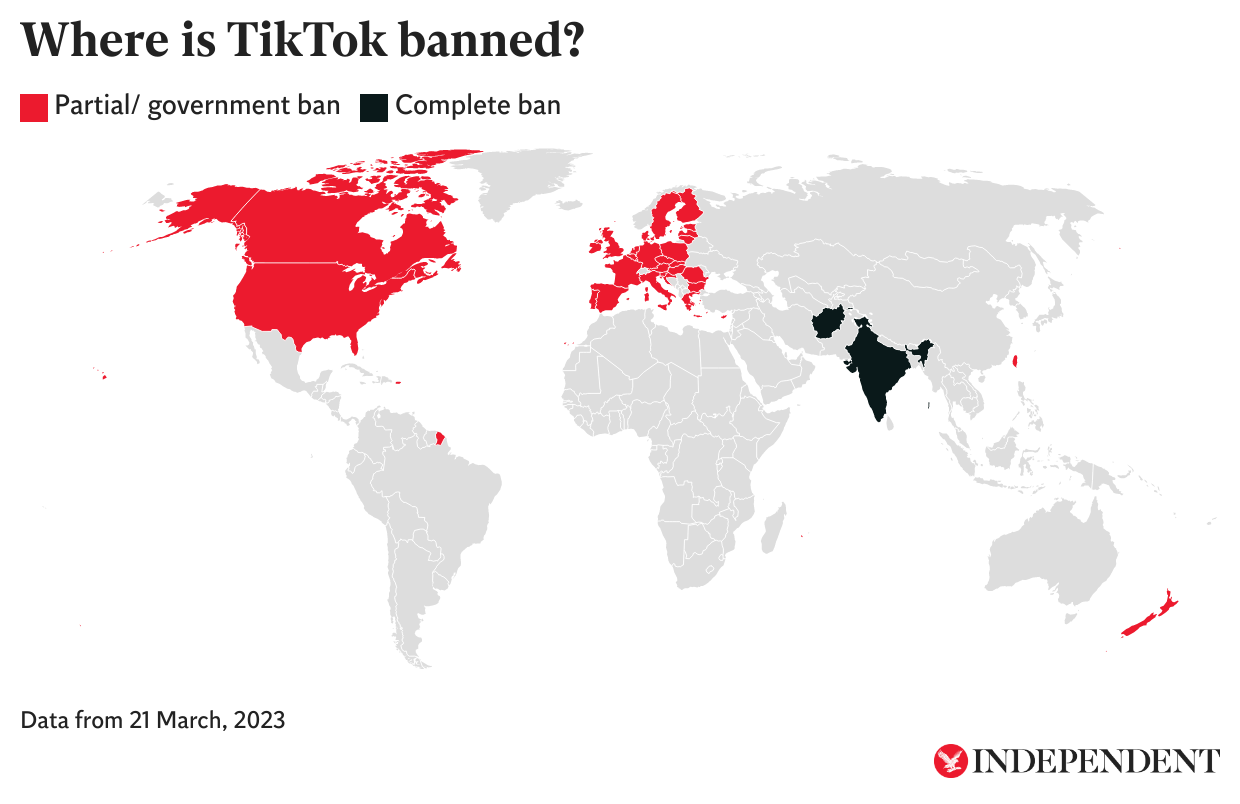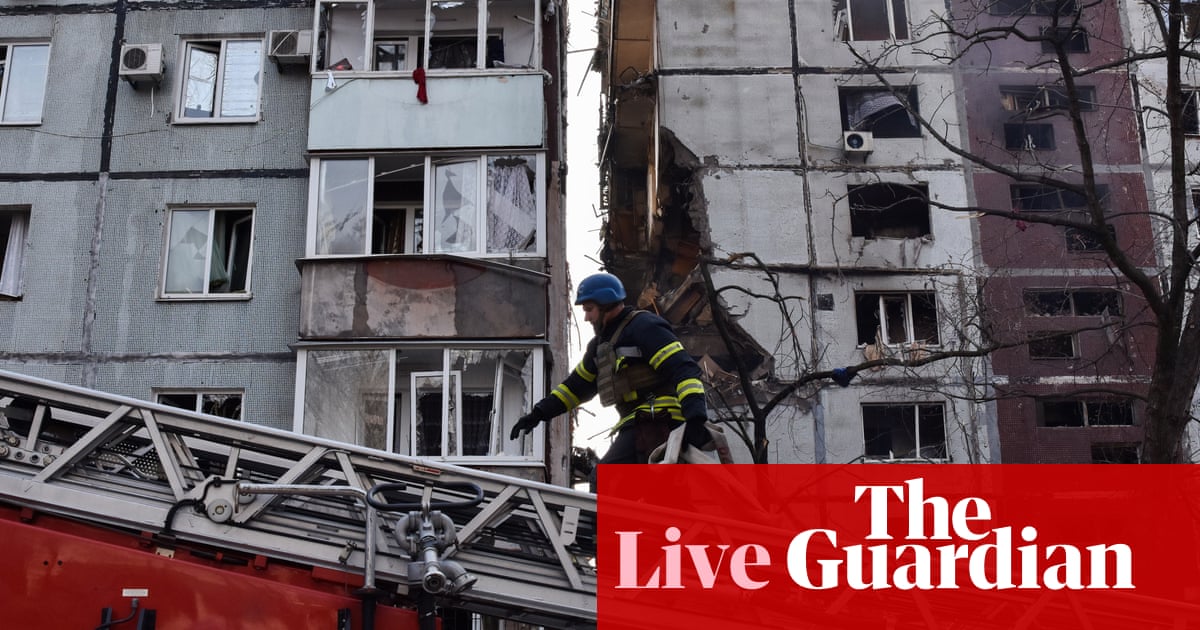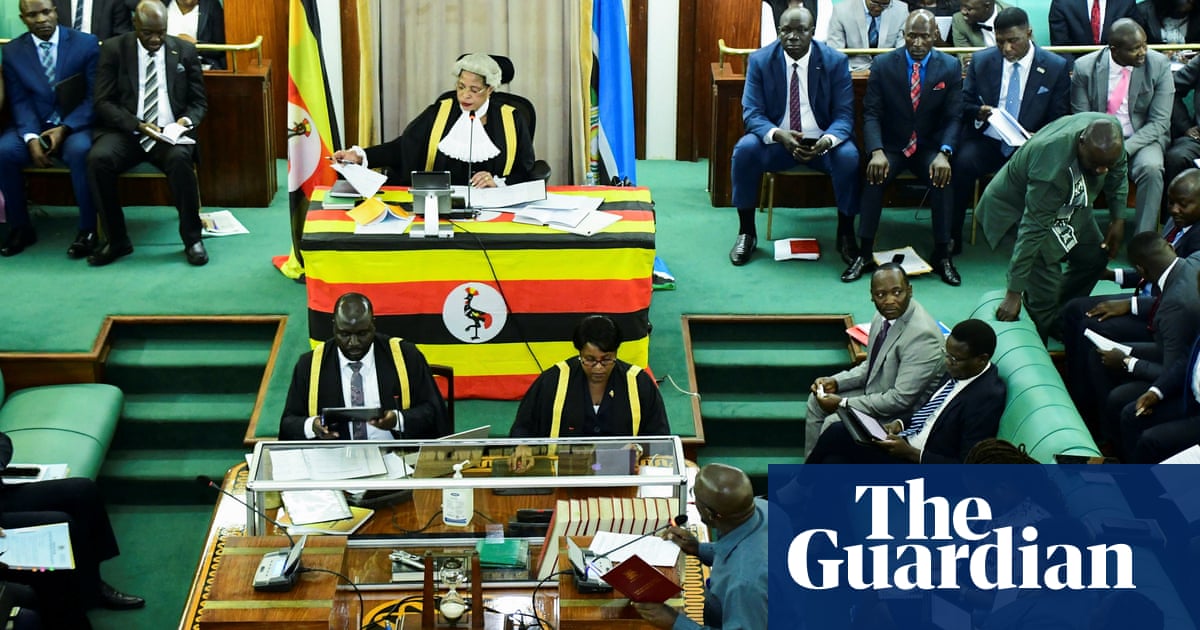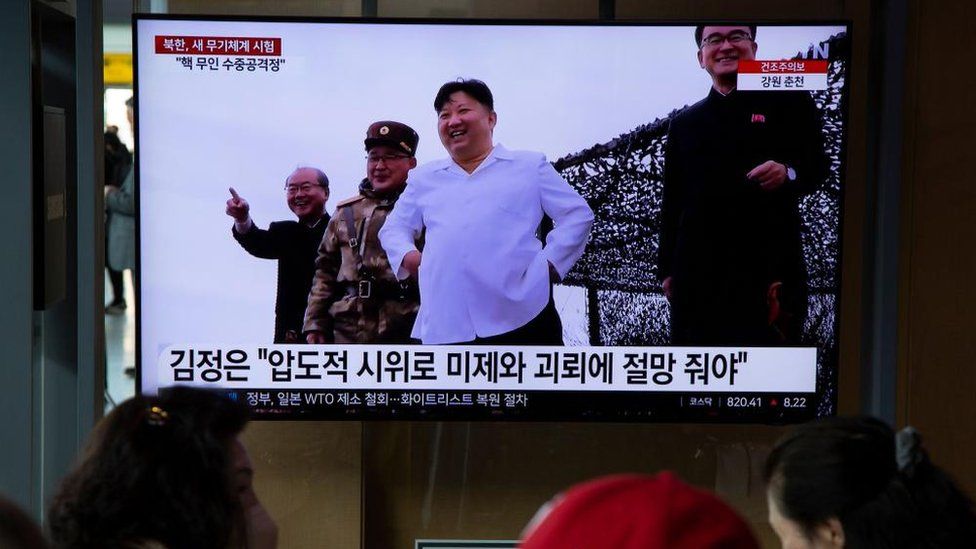
North Korea says it has tested an underwater drone that can unleash a "radioactive tsunami".
The "secret weapon" was put in the waters off South Hamgyong province on Tuesday, state news agency KCNA says.
It cruised for over 59 hours at a depth of 80 to 150 metres and was detonated off its east coast, the report says.
But analysts urge caution on North Korea's claim about the capabilities of the new weapon.
Tensions on the Korean peninsula have been running high, as the US and South Korea concluded the largest joint field exercises in five years on Wednesday.
South Korea President Yoon Suk-yeol said on Friday he would "make sure North Korea pays the price for its reckless provocations".
Dubbed "Haeil", Korean for tsunami, the North's weapon is designed to attack enemy vessels and ports by setting off a "super-scale" radioactive wave, KCNA says.
"This nuclear underwater attack drone can be deployed at any coast and port or towed by a surface ship for operation," it adds.
North Korean leader Kim Jong Un supervised this exercise, and said it should serve as a warning for the US and South Korea to "realise the DPRK's unlimited nuclear war deterrence capability being bolstered up at a greater speed", AFP reported.
North Korea's latest weapon appears to be emulating Russian Poseidon torpedoes, said to be capable of spawning radioactive ocean swells and nuclear tsunamis that could destroy coastal cities in the US.
This weapon is the first of its kind, says Hong Min, a research fellow at the Korea Institute for National Unification. "It is very difficult to be detected in advance by any reconnaissance or interceptor assets that South Korea and the United States have so far."
"North Korea is showing a behavioural pattern of responding with 'nuclear weapons' to all military responses against the past, ongoing and future [US-South Korea] joint exercises," he said.
But Leif-Eric Easley, a professor at Ewha University in Seoul, said Pyongyang's latest claim "should be met with scepticism".
"It is clearly intended to show that the Kim regime has so many different means of nuclear attack that any pre-emptive or decapitation strike against it would fail disastrously," he said.
Ankit Panda, a nuclear weapons specialist at the Carnegie Endowment for International Peace, said: "I tend to take North Korea seriously, but can't rule out the possibility that this is an attempt at deception/psyop (psychological operations)."
Mr Yoon said North Korea was "advancing its nuclear weapons by the day, and carrying out missile provocations with an unprecedented intensity". He made the comments at a ceremony marking West Sea Defence Day, an annual holiday to commemorate the soldiers who died while defending the Northern Limit Line, a disputed maritime border between the Koreas.
Separately, the North fired strategic cruise missiles on Wednesday "tipped with a test warhead simulating a nuclear warhead", KCNA says.
First-ever video footage of North Korea's long-range Hwasal-1/Hwasal-2 "strategic" cruise missiles. (via KCTV) pic.twitter.com/Bv5MbPDP7B
— Ankit Panda (@nktpnd) March 24, 2023

Last Thursday, Pyongyang test-fired an intercontinental ballistic missile just hours before the leaders of South Korea and Japan met for landmark talks.
In 2022, North Korea launched more than 90 missiles - the most it has ever fired in a single year to date - despite being subject to a raft of sanctions from the UN, the US, the EU and its neighbouring countries.
North Korea has become more assertive in its nuclear strategy under Kim Jong Un, who has overseen much of its recent development of its weapons programme, and four of the six nuclear tests so far.
Additional reporting by Damin Jung.
https://news.google.com/rss/articles/CBMiLmh0dHBzOi8vd3d3LmJiYy5jby51ay9uZXdzL3dvcmxkLWFzaWEtNjUwNjA4ODTSATJodHRwczovL3d3dy5iYmMuY28udWsvbmV3cy93b3JsZC1hc2lhLTY1MDYwODg0LmFtcA?oc=5
2023-03-24 08:25:34Z
1837908750
